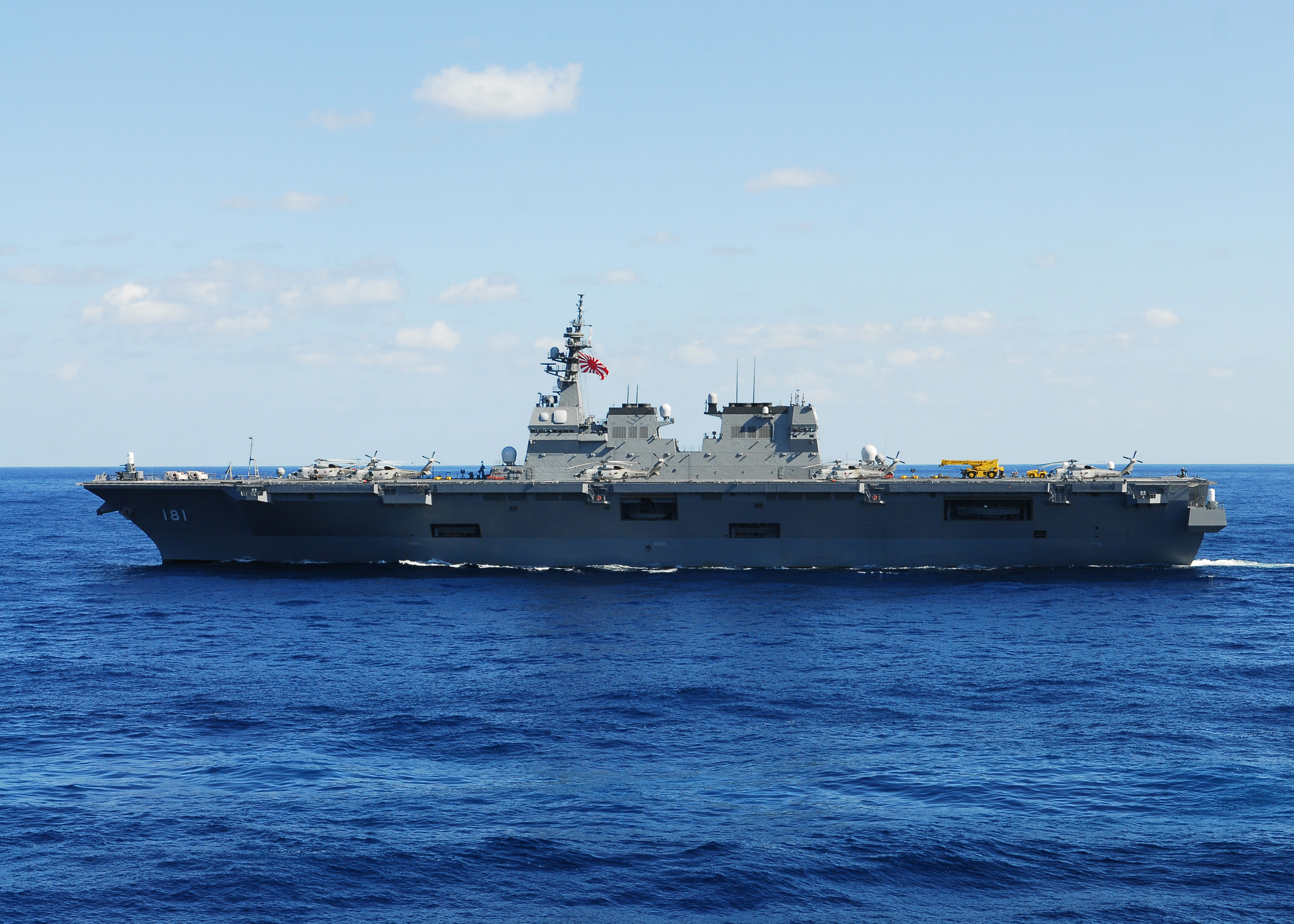The Hyūga-class' specifications are comparable to light aircraft carriers, such as Italian Giuseppe Garibaldi, Spanish Principe de Asturias and Royal Navy's Invincible-class carriers.[4] Under the JMSDF's naming conventions, the ships are called Goei-kan (護衛艦, lit. escort ship) in Japanese and destroyer in English, as same as all the other combatant ships of JMSDF.
According to a PBS documentary, JS Hyūga is the "first Japanese aircraft carrier built since WWII."[5]
The Hyuga 's code-name (16DDH) and Ise 's code-name (18DDH) derive from the Japanese calendar, specifically the 16th year and 18th year of the Heisei reign (2004 and 2006), when the provisional title was given.[1]
Construction of the first ship Hyūga was started in 2006 and it was launched on 23 August 2007. The second was launched and named Ise on 21 August 2009.[13]
| Pennant no. | Name | Laid down | Launched | Commissioned | Homeport |
|---|---|---|---|---|---|
| DDH-181 | Hyūga (16DDH) | 11 May 2006 | 23 August 2007 | 18 March 2009 | Yokosuka |
| DDH-182 | Ise (18DDH) | 30 May 2008 | 21 August 2009 | 16 March 2011 | Kure |
Hyūga was named after Hyūga Province (日向国 Hyūga no kuni) (present-day Miyazaki Prefecture) on the east coast of Kyūshū, and Ise after Ise Province (伊勢国 Ise no kuni) (present-day Mie Prefecture). They inherited the names of the Ise-class battleship Hyūga and Ise of the Imperial Japanese Navy. These two ships had been built during the World War I and served in World War II. Following the Battle of Midway, the Hyuga and Ise were converted into a hybrid battleship/aircraft carriers in 1943 with the replacement of the aft gun turrets and barbettes by a small flight deck and hangar deck with which they could launch a squadron of Yokosuka D4Y dive-bombers and Aichi E16A seaplanes.[4]
In November 2009, Hyūga participated in Annualex 21G joint naval exercise with USS George Washington and other USN and JMSDF ships to maintain the interoperability between the two navies.[citation needed]
On 11 March, 2011, the 2011 Tōhoku earthquake and tsunami struck the northeast part of Japan. Hyūga immediately moved to off the coast of Miyagi prefecture and started search and rescue operation.[14] Ise, which went into service on 16 March, also will join aid delivery operation for refuge shelters.


No comments:
Post a Comment